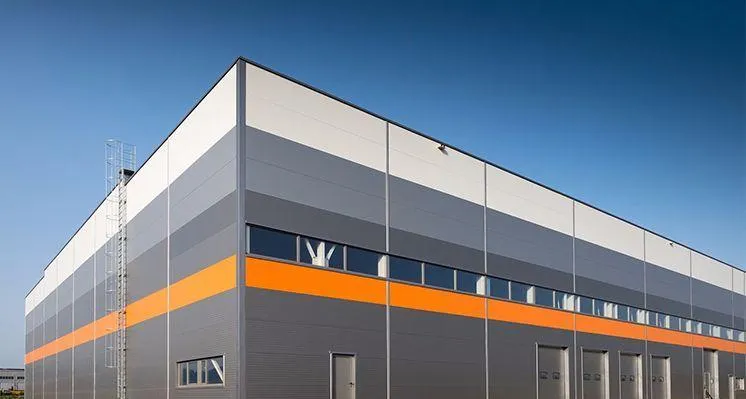- Afrikaans
- Albanian
- Amharic
- Arabic
- Armenian
- Azerbaijani
- Basque
- Belarusian
- Bengali
- Bosnian
- Bulgarian
- Catalan
- Cebuano
- Corsican
- Croatian
- Czech
- Danish
- Dutch
- English
- Esperanto
- Estonian
- Finnish
- French
- Frisian
- Galician
- Georgian
- German
- Greek
- Gujarati
- Haitian Creole
- hausa
- hawaiian
- Hebrew
- Hindi
- Miao
- Hungarian
- Icelandic
- igbo
- Indonesian
- irish
- Italian
- Japanese
- Javanese
- Kannada
- kazakh
- Khmer
- Rwandese
- Korean
- Kurdish
- Kyrgyz
- Lao
- Latin
- Latvian
- Lithuanian
- Luxembourgish
- Macedonian
- Malgashi
- Malay
- Malayalam
- Maltese
- Maori
- Marathi
- Mongolian
- Myanmar
- Nepali
- Norwegian
- Norwegian
- Occitan
- Pashto
- Persian
- Polish
- Portuguese
- Punjabi
- Romanian
- Russian
- Samoan
- Scottish Gaelic
- Serbian
- Sesotho
- Shona
- Sindhi
- Sinhala
- Slovak
- Slovenian
- Somali
- Spanish
- Sundanese
- Swahili
- Swedish
- Tagalog
- Tajik
- Tamil
- Tatar
- Telugu
- Thai
- Turkish
- Turkmen
- Ukrainian
- Urdu
- Uighur
- Uzbek
- Vietnamese
- Welsh
- Bantu
- Yiddish
- Yoruba
- Zulu
Aug . 17, 2024 04:02 Back to list
Insulated Farm Buildings Enhancing Efficiency and Sustainability in Agriculture
In the modern agricultural landscape, efficiency, sustainability, and animal welfare are at the forefront of farm management. One significant aspect contributing to these goals is the construction of insulated farm buildings. These structures play a crucial role in providing a controlled environment for livestock and crops, enhancing productivity while simultaneously minimizing energy consumption and environmental impact.
The Importance of Insulation
Insulation in farm buildings is essential for several reasons. Primarily, it helps maintain a stable internal climate, shielding animals from extreme weather conditions. Extreme temperatures can cause stress in livestock, leading to decreased productivity, fertility issues, and increased susceptibility to diseases. Insulated buildings ensure that the internal temperature remains within a comfortable range, promoting healthier and more productive animals.
In addition to protecting livestock, insulated buildings also benefit crop storage. Proper insulation helps regulate temperature and humidity levels, creating an optimal environment for stored grains and produce. This is crucial in preventing spoilage and maintaining quality, ultimately leading to reduced waste and increased profitability for farmers.
Energy Efficiency and Cost Savings
One of the most significant advantages of insulated farm buildings is their energy efficiency. Proper insulation reduces the need for heating and cooling systems, resulting in lower energy consumption. This is not only beneficial for the environment but also translates to substantial cost savings for farmers. With rising energy prices and increasing awareness of climate change, investing in insulated buildings represents a proactive approach to managing operational costs while contributing to sustainability efforts.
Through innovative insulation materials and designs, farmers can achieve higher energy efficiency ratings for their buildings. Modern insulation technologies, such as spray foam and reflective insulation, provide superior thermal resistance, ensuring that minimal energy is wasted. Moreover, many insulated buildings can be designed to incorporate renewable energy systems, such as solar panels, further enhancing their sustainability.
insulated farm buildings

Enhancing Animal Welfare
Animal welfare is a primary concern in agriculture, and insulated buildings significantly contribute to creating a more humane environment for livestock. An insulated barn, for example, allows farmers to monitor and control air quality, reducing the likelihood of respiratory diseases in animals. Proper ventilation in insulated structures keeps air fresh, eliminates harmful ammonia buildup, and creates a comfortable living space for animals.
Furthermore, insulated buildings can enhance biosecurity by limiting the entry of pests and diseases. A controlled environment minimizes the risk of contamination and helps in maintaining the health of the herd. By prioritizing the welfare of livestock, farmers not only adhere to ethical standards but also improve productivity and economic viability.
Future Trends
As agriculture continues to face challenges like climate change and resource scarcity, the demand for insulated farm buildings is expected to grow. Future trends in agricultural construction may involve even more advanced insulation technologies and sustainable building materials. Innovations such as green roofs, rainwater harvesting systems, and energy-efficient heating solutions are likely to become standard features in new farm constructions.
Additionally, as consumers become increasingly conscious of the origin and quality of their food, farmers who invest in sustainable practices, including insulated buildings, will likely gain a competitive edge in the market. Enhanced animal welfare and product quality through efficient farming practices will resonate with consumers who prioritize sustainability.
Conclusion
In summary, insulated farm buildings are a vital component of modern agriculture, providing numerous benefits that align with efficiency, sustainability, and animal welfare. By investing in insulated structures, farmers can create a conducive environment for livestock and crops, leading to increased productivity and reduced energy costs. As the agricultural industry evolves, the importance of insulation in farm buildings will undoubtedly continue to grow, driving innovation and fostering a more sustainable future for farming.
-
Steel Frame Factory with Insulated Roof Panels
NewsAug.14,2025
-
Prefab Metal Building with Insulation Package Options
NewsAug.14,2025
-
Industrial Steel Sheds for Temporary Workshop Use
NewsAug.14,2025
-
Metal Workshops Featuring Corrugated Steel Roofs
NewsAug.14,2025
-
Modular Steel Frame Excellence: Our Pursuit of Perfection
NewsAug.14,2025
-
Metal Garage Kits Crafted with Customer Satisfaction at Heart
NewsAug.14,2025
Products categories
Our Latest News
We have a professional design team and an excellent production and construction team.












